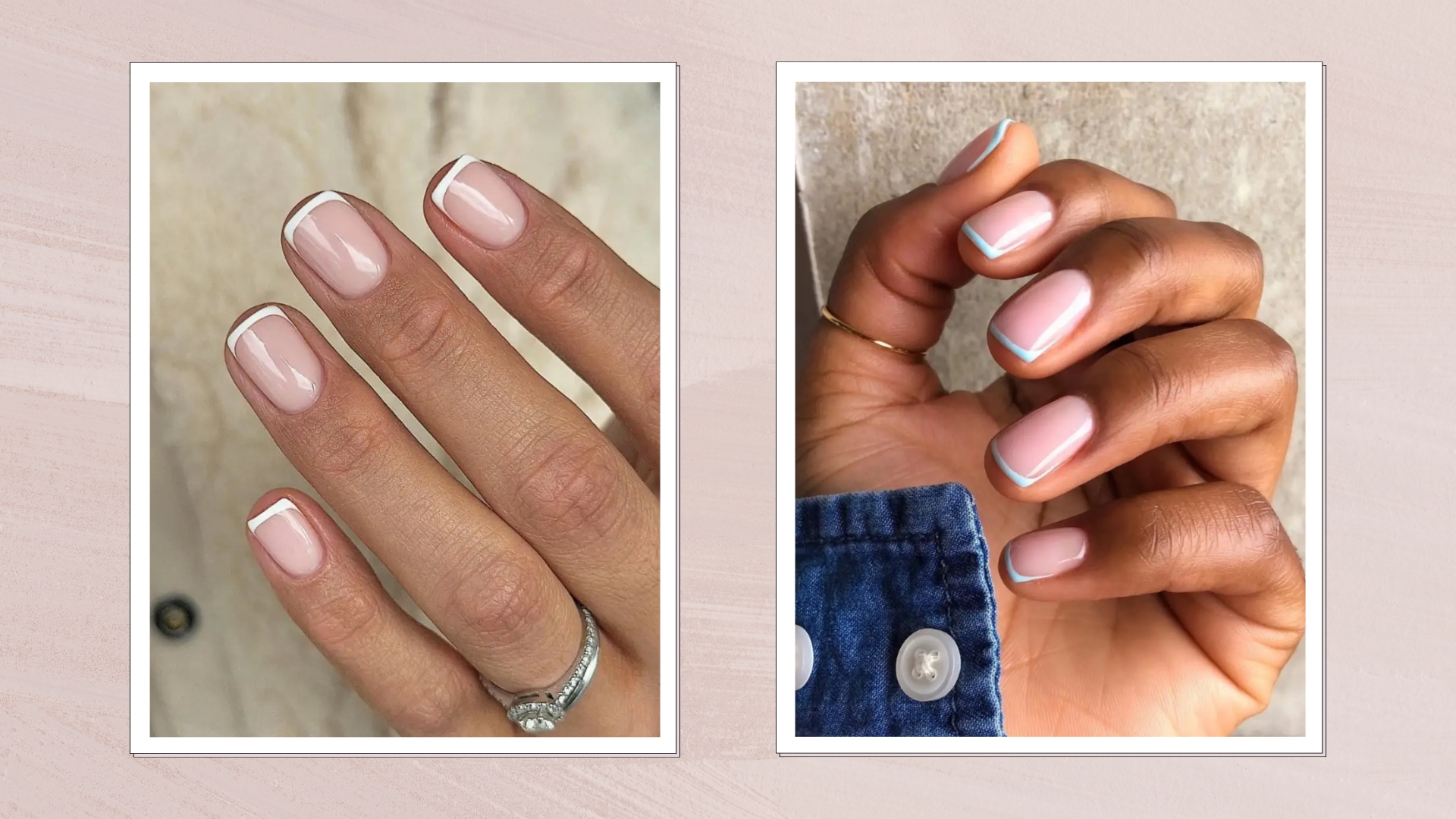Can menopause affect your confidence? Experts reveal the key signs to look out for
Wondering can menopause affect your confidence? Experts reveal the key signs to look out for and how to boost your self-esteem during perimenopause and menopause


Can menopause affect your confidence? When we talk about menopause, it can be all too easy to focus on the physical symptoms as these are the ones that can crop up first and cause the most issues for many people.
However, it's so important to recognise the impact that menopause can have on our mental health. Along with the link between menopause and anxiety, depression, mood swings, and burnout, many women find their self-esteem and confidence take a hit.
If that sounds like your experience, it's important to know you're not alone. According to an NHS survey, 67% of women find their confidence knocked by the symptoms of perimenopause and menopause, and everything else that comes along with it. Here, woman&home speaks to several experts to reveal the key signs to look out for and what can be done about it.
Can menopause affect your confidence?
Yes, can certainly affect your confidence. Whether it's physical changes impacting how you feel about your body, mood swings, brain fog impacting your day-to-day work, or persistent sleep issues, many of the symptoms of menopause can make you question how you feel about yourself.
According to Dr Jo Perkins, a chartered coaching psychologist and counselling psychologist, there are two key reasons for this:
- Biological: "As we go through the stages of menopause, our hormones change and our oestrogen and testosterone levels dip. These hormones play an important role in regulating a range of different functions in our bodies and brains, including our energy levels, memory function, sleep, appetite, metabolism, our adrenal glands, musculoskeletal and skin health," Dr Perkins says.
- Circumstantial: Naturally this will differ from person to person but for many women, "menopause coincides with significant life changes that can include children growing up and leaving home, becoming a carer for relatives, a change in routine, leaving work through choice or being made redundant, changes to friendships, separation, divorce and bereavement, all of which can affect self-esteem, purpose and identity, as these changes are navigated," she says.

Dr Jo Perkins is a chartered coaching and counselling psychologist. She also supports senior business professionals and organisations in developing effective strategies for change. As an experienced therapist, Dr Perkins supports individuals and couples with a wide range of issues.
So, it makes sense that experiencing these life changes would affect how we think, look, feel, and behave, all of which are so closely intertwined with our levels of confidence.
According to Dr Deborah Lee, a women's health specialist who works with Dr Fox Online Pharmacy, low confidence and self-esteem are most commonly a problem for pre and perimenopausal women and those postmenopause. "Menopausal symptoms usually improve a few years after the last menstrual period, and as these symptoms slowly disappear, many women start to feel very much better physically and emotionally," she says. "But all women are different and unfortunately, 5% of women have hot flushes for life, for example. Their problems may well continue well into the postmenopausal years."
Sign up for the woman&home newsletter
Sign up to our free daily email for the latest royal and entertainment news, interesting opinion, expert advice on styling and beauty trends, and no-nonsense guides to the health and wellness questions you want answered.

Dr Deborah Lee was an NHS doctor for many years. Having trained as a GP, she worked primarily as a lead clinician within an integrated Community Sexual Health Service, specialising in all aspects of women's health but with a particular interest in menopause. Dr Lee now works as a medical and healthcare content writer for Dr Fox Online Pharmacy.
Key signs of low confidence in menopause
1. Feeling anxious, worried, or stressed
There's a clear link between menopause and anxiety, depression, and low self-esteem. It's vitally important to seek help from a medical professional if you find yourself struggling with your mental health, such as your doctor.
While we're constantly reminded how much of a role our hormones can play in our mood and mental health with years of having a period, the reduction in oestrogen levels permanently can cause new side effects.
"The reduction in oestrogen affects the function of the adrenal glands, which help to regular our body's response to stress," explains Dr Perkins. "This physical cause can create a psychological response as it can increase anxiety, stress, and worry, which in turn, affects confidence."
2. Negative self-talk
Self-doubt and a loss of confidence can lead to negative self-talk very quickly, explains Dr Perkins. "You may be overly critical about yourself, your ability, your experience, your skills, your worth, your body and your self-image. Talking negatively to yourself can create a vicious cycle as it makes you feel worse about yourself which further reduces confidence and self-esteem," she says.
For Tanya, 55, an estate agent in London, it was the brain fog that was the biggest issue for her confidence. "One afternoon I left to show someone around a property, got in my car and everything. As I pulled away to the appointment, I remembered I'd already had it that morning. I was so confused but I'd put it in my calendar twice...or something like that. I missed an appointment completely for the first time ever a couple of weeks later. It made me start double and triple-checking my calendar, confirming via email before each appointment. I didn't trust myself that I'd got it right for ages."
3. Negative body image
"Women experiencing menopause may become more critical of their bodies due to the physical changes associated with this life stage," says Dr Rina Bajaj, a counselling psychologist and the author of The Magic In Me.
Unwanted weight gain linked to menopause is common, even for those who've never had an issue with their weight in the past. Our skin, hair, and nails may also change in appearance due to the decline in certain hormones.
This, the psychologist says, "can manifest in self-doubt, self-consciousness, and a diminished sense of attractiveness, leading to some avoidance of social situations or intimacy due to these concerns."
And of course, societal expectations of youth and its associated beauty ideals have hardly helped with this, she adds. "It can exacerbate these feelings of low body confidence," she says.
Dr Rina Bajaj is an award-winning chartered counselling psychologist, trainer and published author, running her own practices in London. Rina has over 17 years of experience within the field of mental health and wellbeing across a range of industries, including charities, the NHS, corporate companies and the education sector. She is passionate about supporting people from all communities to gain access to the right support as quickly as possible so that they are able to thrive and reach their full potential.
4. Socialising less
A lack of confidence can lead to social withdrawal and isolation. "It's common for women to want to avoid social gatherings, networking events, or even regular interactions with friends and family," explains Dr Bajaj. "They may worry about how they will be perceived by others and a fear of judgement or criticism."
This is why having a support network around you, especially during menopause can be so beneficial.
5. Difficulty at work
Many find their menopause symptoms so disruptive that leaving work is the only option. A survey conducted by balance, one of the best health apps for menopause, reveals that of 4,000 respondents, 99% said that their symptoms impacted their career and 59% had to take time off. One in five women also passed on the chance for a promotion due to concerns about menopause.
"When confidence dips, anxiety increases and the inner critic becomes lively," says Dr Perkins. "It can feel safer and easier at this life stage to withdraw from professional situations rather than risk exposing yourself to situations that take a lot of mental and physical energy and effort. It can lead to feelings of inadequacy and negative comparisons."
It's something that Kelly H, now 58 but 45 when the main symptoms hit, can relate to personally. "Most of my friends are older than me so they warned me what it would be like. But I didn't expect my hot flushes to be as bad as they were. When I got a hot flush, I went so red and I felt so embarrassed, especially when they happened at work. As the only woman on a team with men and much younger women, I was always checking for sweat marks on my clothes and going outside to cool down. It made me so nervous to go into the office that I started working from home more often."
Earlier in the year, a proposed UK menopause law hit the headlines, designed to make menopause a protected characteristic under the Equality Act 2010 and prevent women from losing out professionally during this stage of life. However, the British government rejected the proposal.
How to boost your confidence in menopause
- Seek support: If you're struggling with your mental health and low confidence at any time in life, the first step should be to reach out for support from a doctor who can offer both mental and physical health advice, but even just talking to family and friends can make a big difference.
- Make a plan: "Tackle each of the challenges you are experiencing," says Dr Perkins. "Write down each challenge and consider what, if anything, you can do to address it. For example, if you are feeling exhausted, look at how much sleep you are currently getting, what is getting in the way of good quality sleep, could reducing or quitting caffeine in menopause or alternatives to alcohol help, look at your daily routine to see what you can change, stop and introduce to boost your energy."
- Consider how you see yourself: "Make time and create space to step back and meet yourself at this stage of your life," says the doctor. "Reflect on all that you have experienced, learned and achieved over the course of your life. Start to appreciate who you really are, what you have to offer and how much you have grown. Regular acts of self-appreciation will help you to know, value and love yourself, which will lead to increased self-esteem and confidence."
- Reframe your narrative: You can learn how to be confident again. "You may benefit from getting inspiration from others who have talked positively about ageing and this stage of life," she says. "You can start to reframe your narrative so it is more balanced, optimistic, and confident. Although you may not fully believe it from the beginning, over time it will change your perception."
- Find confidence elsewhere: As revealed in our series, How Exercise Changed My Life, many women have found confidence somewhere new after going through menopause. Triathlete Donna McConnell, for instance, dealt with menopause symptoms by training consistently. It was a habit she found helped her mental and physical health significantly.
Can HRT help?
Yes, says Dr Lee, hormone replacement therapy (HRT) can be a "very helpful way of improving self-confidence" related to menopause simply because it helps alleviate some of the more troublesome symptoms.
"Oestrogen replacement often helps to improve sleep, clear brain fog, and it helps women cope with many other symptoms of menopause, including vaginal dryness and urinary symptoms," she explains. "Once you're sleeping better and have more energy, you can function better at home and in the workplace, all of which is likely to lead to an increase in confidence and self-esteem."
Plus, she adds, "Oestrogen is more effective than traditional antidepressants in treating menopausal anxiety and depression." In fact, research from the University of Adelaide shows that HRT is the most effective treatment generally for hot flushes and night sweats too, reducing the chance of these being an issue as well.
To understand more about HRT and whether it's suitable for you, consult with your doctor.

Grace Walsh is woman&home's Health Channel Editor, working across the areas of fitness, nutrition, sleep, mental health, relationships, and sex. She is also a qualified fitness instructor. In 2025, she will be taking on her third marathon in Brighton, completing her first ultra marathon, and qualifying as a certified personal trainer and nutrition coach.
A digital journalist with over seven years experience as a writer and editor for UK publications, Grace has covered (almost) everything in the world of health and wellbeing with bylines in Cosmopolitan, Red, The i Paper, GoodtoKnow, and more.
-
 We never thought we'd see this 'dated' manicure make a chic comeback, but here it is - and we're on board
We never thought we'd see this 'dated' manicure make a chic comeback, but here it is - and we're on boardClean and angular, short square French tips are a go-to this season for a practical but stylish manicure...
By Naomi Jamieson Published
-
 Where was Black Snow season 2 filmed and is it based on a true story?
Where was Black Snow season 2 filmed and is it based on a true story?Black Snow season 2 has landed on BBC iPlayer and the picturesque scenery is a stark contrast against the drama's chilling events.
By Emma Shacklock Published